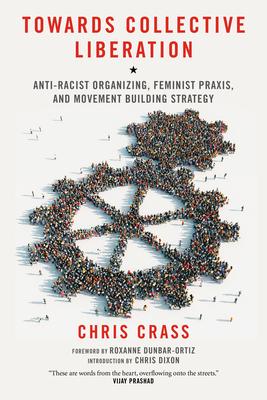Towards Collective Liberation: Anti-Racist Organizing, Feminist Praxis, and Movement Building Strategy is for activists engaging with dynamic questions of how to create and support effective movements for visionary systemic change. Chris Crass's collection of essays and interviews presents us with powerful lessons for transformative organizing through offering a firsthand look at the challenges and the opportunities of anti-racist work in white communities, feminist work with men, and bringing women of color feminism into the heart of social movements. Drawing on two decades of personal activist experience and case studies of anti-racist social justice organizations, Crass insightfully explores ways of transforming divisions of race, class, and gender into catalysts for powerful vision, strategy, and movement building in the United States today.
Over the last two decades, activists in the United States have been experimenting with new politics and organizational approaches that stem from a fusion of radical political traditions and liberation struggles. Drawing inspiration from women of color feminism, justice struggles in communities of color, anarchist and socialist movements, the broad upsurges of the 1960s and 70s, and social movements in the Global South, a new generation of activists has sought to understand the past while building a movement for today's world. Towards Collective Liberation contributes to this project by examining two primary dynamic trends in these efforts: the anarchist movement of the 1990s and 2000s, through which tens of thousands of activists were introduced to radical politics, direct action organizing, democratic decision making, and the profound challenges of taking on systems of oppression, privilege, and power in society at large and in the movement itself; and white anti-racist organizing efforts from the 2000s to the present as part of a larger strategy to build broad-based, effective multiracial movements in the United States.
Crass's collection begins with an overview of the anarchist tradition as it relates to contemporary activism and an in-depth look at Food Not Bombs, one of the leading anarchist groups in the revitalized radical Left in the 1990s. The second and third sections of the book combine stories and lessons from Crass's experiences of working as an anti-racist and feminist organizer, combining insights from the Civil Rights Movement, women of color feminism, and anarchism to address questions of leadership, organization building, and revolutionary strategy. In section four, Crass discusses how contemporary organizations have responded to the need for white activists to lead anti-racist efforts in white communities and how these efforts have contributed to multiracial alliances in building a broad-based movement for collective liberation. Offering rich case studies of successful organizing, and grounded, thoughtful key lessons for movement building, Toward Collective Liberation is a must-read for anyone working for a better world.
